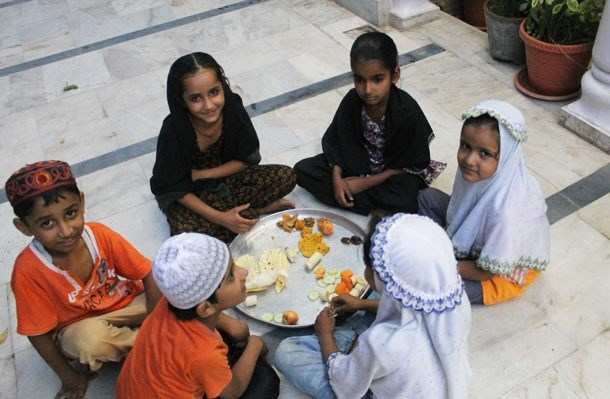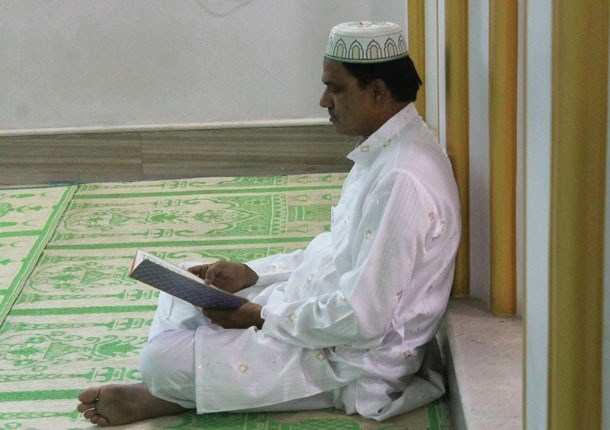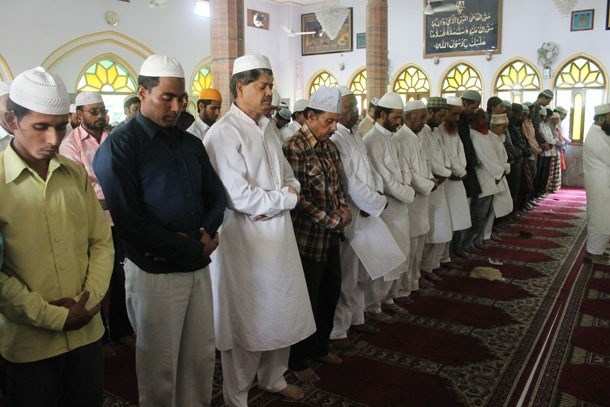Ramadan: Rulebook to Life
Muslim or not, we all know or have at least heard the buzz of Ramadan month that we are passing through. We also know that Muslims keep a whole day fasts in this month and that’s tough!

Muslim or not, we all know or have at least heard the buzz of Ramadan month that we are passing through. We also know that Muslims keep a whole day fasts in this month and that’s tough!
Ramadan falls on the ninth month of the Islamic calendar, when Muslims worldwide observes a month of fasting. Ramadan is regarded as one of the Five Pillars of Islam. The month lasts 29-30 days based on the visual sightings of the crescent moon.
Theoretically, this is enough to know about what Ramadan is, and for what it’s done. I was not even curious to know more, not until I saw everyone from the community including kids to old ones, keeping day-long fasts and having Iftar together.
Iftar refers to the evening meal when Muslims break their fast often done as a community, with people gathering to break their fast together. Iftar is done right after Maghrib (sunset) time. Traditionally, three dates are eaten to break the fast, in the tradition of the Prophet Muhammd, who broke his fast in this manner.
Reading such things, seeing that on Television would not move you until you visit any Masjid in the evening at the time of Iftar, where everybody gathers, offers prayers and then concludes their day’s fast together. I have not seen even a single face which is dropped down during the fasting course, as they say “Allah provides strength to the one who observes fast, one won’t even feel the difference.”
One said, “I don’t see myself connected to this world, when am fasting; it’s a nice feeling”.
I then dug deeper to find out that nearly all religions have the clause of fasting through one or other description. In Ramadan, it’s about the purification of soul through spiritual discipline and self-control. Those observing Ramadan needs to abstain themselves from eating, drinking, intercourse and also from lying, malicious gossip, quarreling, trivial nonsense in the behavioral context.

It’s not about measuring your capability to resist the urge for eating/drinking, it’s about putting in those moral and human values that we often tend to loose in the chase of materialistic and tempting goodies.
Conventionally, it is also the practice which brings you near Allah, by making you conscious of your wild attributes, and how to keep a tap on them. When I asked how one can keep his calm during fasting, one answered, “I am not hungry, or thirsty, or not even lewd for having something – as I am fasting, He gives me strength”.
Fasting in Ramadan is not even uninterrupted as it is also compulsory to eat on the times of Sehri and Iftar. The basic concept lies in a nutshell, that one should know how to control and monitor their urges – eating and drinking, for example.
Sehri (Suhoor), refers to the meal consumed early in the morning by Muslims before fasting, sawm, in daylight hours during the Islamic month of Ramadan. The meal is eaten before fajr, or dawn.
Devotees are encouraged to read holy Qur’an in this month and special prayers known as Tarawih are offered in Mosques every night while the Qur’an is recited. This is done to complete reciting the whole Qur’an in the tenure of a month.

I have seen kids and even individuals in their very old age, performing fasts and when you ask them to eat (unknowingly, off course!) they would reply – I am Fasting. While they say that, you won’t sense even a single strain on their face; as for them it’s a Way of Life, not some rules governing their urges.
Concluding the month of Ramadan, one sight of another New Moon; a special celebration known as Id-ul-Fitr is celebrated where every single Muslim in the community comes out to celebrate the conclusion of the Holy Month of Ramadan.
Going through some literature on Ramadan, I found a very true line written as – Of all the creation of God, only Man deviates from his path. Ramadan is all about bringing that Man into his consciousness of what is wrong and what is right.
To end it, I would love to share what my friend (who is observing fasts) said – “It would be painful to enter those daily chores after the month ends, I like how it is in Ramadan”. And, I think it’s enough for one to understand the beauty of this month.
We all could learn many things and tits-bits of life, and how to live it by following principals they follow in this month. As that is not about religion that is about how one should live.
To join us on Facebook Click Here and Subscribe to UdaipurTimes Broadcast channels on GoogleNews | Telegram | Signal


